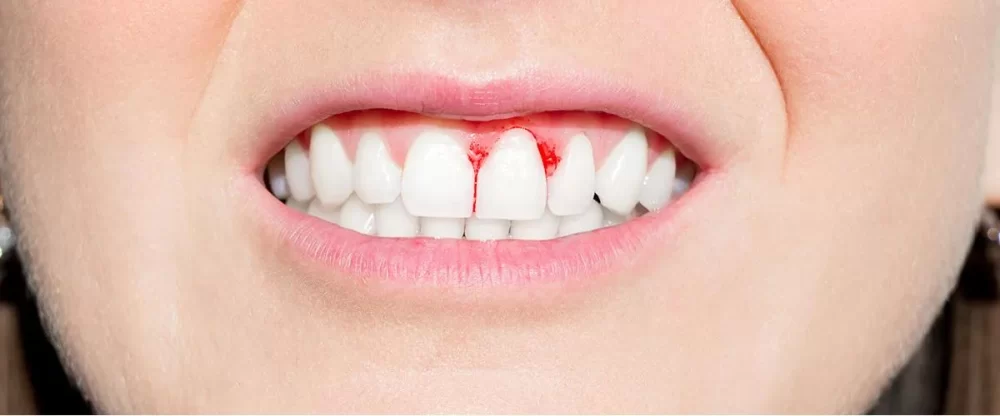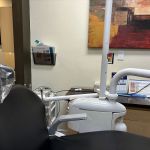
What to Do for Sudden Bleeding Gums: Causes, Symptoms, and Effective Remedies
If you’ve ever woken up or noticed blood on your toothbrush while brushing your teeth, you might have wondered what caused this sudden bleeding from your gums. I’ve experienced this firsthand, and it can be unsettling. While occasional bleeding gums might not always indicate something serious, it’s important to understand what’s happening in your mouth. Over the years, I’ve learned that taking the right steps early can make a huge difference in both the comfort of my gums and my overall oral health.
1. Understanding the Causes of Bleeding Gums
When I first experienced bleeding gums, I didn’t know where to begin. I thought it might just be a fluke, or perhaps I had brushed too hard. But after researching and consulting with my dentist, I learned that bleeding gums are often a sign of something more significant. There are several common causes, and understanding these can help you take the right steps for treatment.
1.1 Gingivitis: The Most Common Culprit
One of the most common causes of bleeding gums is gingivitis, which is the early stage of gum disease. I discovered that gingivitis occurs when plaque—a sticky, colorless film of bacteria—builds up along the gum line. If plaque is not removed through regular brushing and flossing, it can irritate the gums, causing them to swell, become red, and bleed when touched. When I first experienced gingivitis, my gums bled easily, and I noticed some puffiness. The good news is that gingivitis is usually reversible with improved oral hygiene, making it a manageable condition if caught early.
1.2 Periodontitis: A More Serious Condition
If gingivitis is left untreated, it can progress to periodontitis, a more severe form of gum disease. When I learned this, I was shocked. Periodontitis can cause the gums to recede and even lead to tooth loss if not addressed. It happens when bacteria in plaque spread below the gum line, causing deep infections. Symptoms of periodontitis can include bleeding gums, persistent bad breath, and even teeth loosening. This is why I’ve always emphasized early dental care and prompt attention to any signs of gum issues.
1.3 Other Possible Causes of Bleeding Gums
While gum disease is the most common cause of bleeding gums, I learned that there are other potential reasons for the issue as well. These include hormonal changes (such as during pregnancy), certain medications that affect blood clotting, and medical conditions like diabetes or blood disorders. In my case, I discovered that stress and lack of sleep were also contributing factors. When I focused on managing stress and getting more rest, my gums improved significantly.
2. What to Do Immediately When You Notice Bleeding Gums
The first time I noticed my gums bleeding, I wasn’t sure what to do. It’s important to take immediate action to prevent the situation from worsening. Here's what I learned helps in the short term:
2.1 Improve Your Brushing Technique
If you’re brushing too aggressively, this can cause your gums to bleed. I discovered that using a soft-bristled toothbrush and gentle strokes can prevent irritation. I also focused on brushing my teeth for at least two minutes, ensuring I was cleaning along the gum line to remove plaque effectively. A gentle, consistent brushing routine is key to improving gum health and stopping further bleeding.
2.2 Floss Regularly and Gently
When I first started flossing, I was cautious because I was afraid of further irritating my gums. However, I learned that flossing regularly is essential for maintaining healthy gums. I made sure to floss gently between my teeth and under the gum line to remove food particles and plaque. Regular flossing, especially when paired with proper brushing, helps prevent the buildup of plaque and reduces the likelihood of future gum bleeding.
2.3 Use a Saltwater Rinse
After experiencing bleeding gums, I quickly found relief from saltwater rinses. I mixed warm water with a teaspoon of salt and rinsed my mouth several times a day. This helped reduce inflammation and bacteria in my mouth. Saltwater is an affordable, natural remedy that can soothe your gums and help promote healing. I found this simple solution incredibly effective when my gums were sore or inflamed.
2.4 Avoid Irritants Like Smoking or Alcohol
After doing some research, I discovered that smoking and drinking alcohol can irritate the gums and make bleeding worse. I made a conscious effort to cut back on smoking and limit my alcohol intake. This, in combination with better oral hygiene, helped prevent further gum issues. If you smoke or drink frequently, it might be worth considering how these habits are affecting your oral health and taking steps to reduce them.
3. Long-Term Solutions to Prevent Bleeding Gums
While it’s important to address immediate concerns when you notice bleeding gums, long-term solutions are just as crucial. I found that a proactive approach to my dental health helped me avoid recurring gum problems. Here are some of the steps that made a big difference in my gum health over time:
3.1 Regular Dental Checkups
One of the most important steps I took was scheduling regular dental checkups. Dentists can detect signs of gum disease or other oral health issues early, allowing for prompt treatment. I learned that preventive care is crucial, and by visiting my dentist every six months, I was able to stay on top of any potential issues before they became serious. It’s amazing how much a simple checkup can prevent further complications.
3.2 Eating a Healthy Diet
What you eat plays a significant role in your gum health. I focused on consuming foods rich in vitamins and minerals, particularly vitamin C, which is essential for gum health. Fresh fruits, vegetables, and lean proteins helped support my overall oral health. Additionally, staying hydrated by drinking plenty of water helped keep my gums moist and healthy, reducing the likelihood of irritation and bleeding.
3.3 Using an Antiseptic Mouthwash
Incorporating an antiseptic mouthwash into my routine helped me significantly reduce the bacteria in my mouth. I started using a mouthwash that was specifically designed for gum care, which helped fight plaque and gingivitis. This step worked hand in hand with my brushing and flossing routine to keep my gums in top shape and prevent bleeding in the long run.
4. When to See a Dentist for Bleeding Gums
While minor gum bleeding can often be treated at home, there are situations where seeing a dentist is necessary. I learned that if my gums continued to bleed for more than a few days, or if the bleeding was accompanied by severe pain, it was time to seek professional help. A dentist can evaluate the severity of your condition and provide treatments like deep cleanings or medication to manage gum disease.
In some cases, bleeding gums can be a sign of a more serious underlying health condition, and a dentist can help identify and treat these issues. I was relieved when I took action early, as this prevented my gum problems from getting worse.
5. My Personal Journey with Bleeding Gums
When I first experienced bleeding gums, I was worried, but I quickly realized that the right care and attention made all the difference. I learned that improving my brushing and flossing habits, using natural remedies like saltwater rinses, and committing to regular dentist visits helped me regain healthy gums. Today, I don’t have to worry about bleeding gums, and I feel confident in the health of my smile.
If you’ve been experiencing bleeding gums, don’t panic. By taking immediate action and making a few simple changes, you can keep your gums healthy and prevent further issues. A little attention to your oral hygiene can go a long way in ensuring that your gums stay strong and healthy for years to come.







 Affordable Dental at Eastern & Windmill4.0 (287 review)
Affordable Dental at Eastern & Windmill4.0 (287 review) Aloha Dental Group4.0 (289 review)
Aloha Dental Group4.0 (289 review) Audubon Dental Associates Ltd5.0 (6 review)
Audubon Dental Associates Ltd5.0 (6 review) Dental Associates, Inc.4.0 (264 review)
Dental Associates, Inc.4.0 (264 review) The Smilist Dental Syosset4.0 (354 review)
The Smilist Dental Syosset4.0 (354 review) Timothy P. Weis, DDS3.0 (1 review)
Timothy P. Weis, DDS3.0 (1 review) The Importance of Oral Health Education During Pregnancy for a Healthy Pregnancy
The Importance of Oral Health Education During Pregnancy for a Healthy Pregnancy Best Tips for Brushing Your Teeth Properly for Healthy Gums: Essential Techniques for Oral Health
Best Tips for Brushing Your Teeth Properly for Healthy Gums: Essential Techniques for Oral Health Why Skipping Dental Checkups Can Lead to Bigger Oral Health Problems
Why Skipping Dental Checkups Can Lead to Bigger Oral Health Problems Advantages of Porcelain Dental Restorations
Advantages of Porcelain Dental Restorations How Can Diabetes Cause Tooth and Gum Problems? Preventing and Managing Oral Health Issues
How Can Diabetes Cause Tooth and Gum Problems? Preventing and Managing Oral Health Issues Healthy Habits for Promoting Good Oral Health and Hygiene: Tips for a Healthy Smile
Healthy Habits for Promoting Good Oral Health and Hygiene: Tips for a Healthy Smile